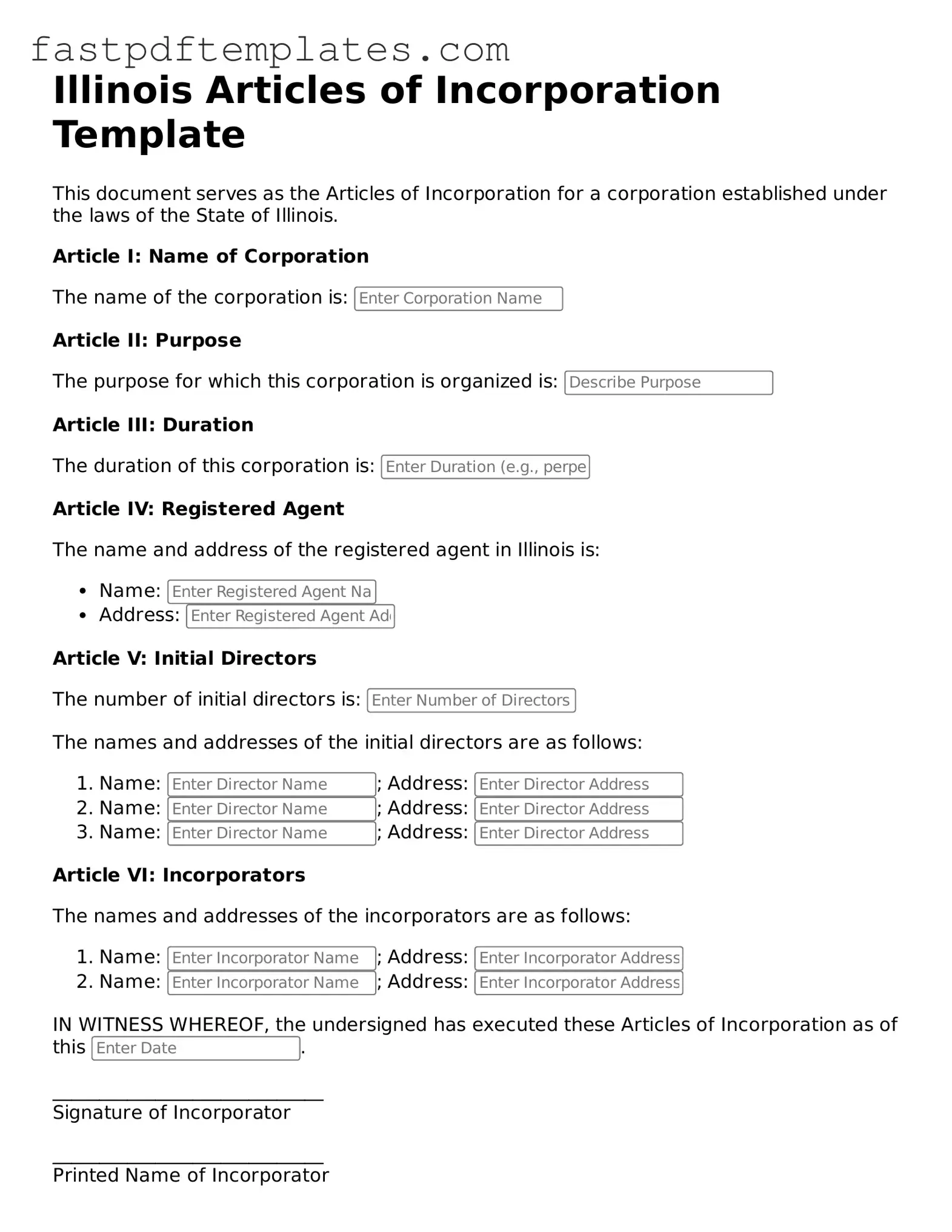Attorney-Approved Illinois Articles of Incorporation Document
The Illinois Articles of Incorporation form is a legal document that establishes a corporation in the state of Illinois. This form outlines essential details about the corporation, such as its name, purpose, and structure. Properly completing and filing this form is a crucial step in the process of forming a business entity in Illinois.
Access Document

Attorney-Approved Illinois Articles of Incorporation Document
Access Document
Your form still needs completion
Complete your Articles of Incorporation online and download the final PDF.
Access Document
or
Click for PDF Form
